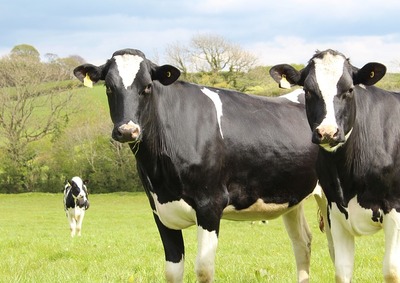New Bill Would Allow Wisconsin Farmers to Get Grant for Using Grazing Practices that Benefit Soil Health
Sunday, April 6th, 2025 -- 9:00 AM

(Danielle Kaeding, Wisconsin Public Radio) Wisconsin farmers could get grants to use grazing practices that benefit soil health, animal welfare and water quality under a bipartisan bill making its way through the Wisconsin Legislature.
According to Danielle Kaeding with the Wisconsin Public Radio, on Thursday, the state Senate’s agriculture committee held a hearing on a bill that would set up a pilot program offering technical support and grants of up to $40,000 for farmers that use managed grazing systems.
The practice involves rotating cattle through smaller pastures to feed on perennial forage rather than grains, allowing time for those grasses to grow back.
State Sen. Jesse James and Rep. Todd Novak, both Republicans, introduced the bill along with Democratic Wisconsin Sens. Brad Pfaff and Mark Spreitzer, among others. A similar proposal received unanimous support in the Assembly’s agriculture committee last year, but it failed to advance through the full Legislature.
To remain competitive in global markets, James said many Wisconsin farmers have shifted to confining animals to smaller areas rather than letting them roam on pasture. He said incentives for rotational grazing practices would help farmers return grass-fed systems.
“This routine has many benefits, including significantly improving soil health and water quality,” James said. “It also reduces the amount of manure needed to be stored on the farm, further mitigating potential downsides related to spills and runoff.”
The bill is also backed by a coalition of groups dubbed the Clean Water Initiative, which includes the Dairy Business Association, Clean Wisconsin, the Wisconsin Land and Water Conservation Association and the Nature Conservancy.
Alex Madorsky, the conservancy’s associate director of government relations, said Brey Cycle Farm in Door County converted 140 acres of row crops to managed grazing, reducing annual soil erosion by more than 200 tons and phosphorus runoff by 126 pounds.
Such nutrient runoff can lead to harmful algal blooms. Carl Flaig with Flaig Family Farm in central Wisconsin said he began using grazing practices on his small dairy in 2005 due to high feed costs and challenges with growing row crops on highly erodible soil.
“It was very important for me in 2005 when I transitioned over to grazing, because it gave me a healthier dairy herd and (I) was able to become more economical,” Flaig said.
Feel free to contact us with questions and/or comments.




